Citric Acid Cleaning Hacks: Unlock the Sparkling Secrets to a Spotless Home!
Have you ever looked at a stubborn stain or a grimy appliance and wished you had a magic wand? Well, while I can’t offer you magic, I can offer you something pretty darn close: the power of citric acid! For centuries, cultures around the globe have harnessed the natural cleaning prowess of citrus fruits, from ancient Romans using lemon juice to brighten their togas to modern-day eco-conscious cleaners seeking sustainable solutions.
But why should you care about citric acid cleaning hacks? Because let’s face it, nobody enjoys spending hours scrubbing away at messes. Life’s too short for that! And with the rising cost of commercial cleaning products, many of us are searching for affordable, effective, and environmentally friendly alternatives. That’s where these amazing citric acid cleaning hacks come in.
In this article, I’m going to share my favorite DIY tricks for using citric acid to tackle everything from hard water stains in your bathroom to stubborn coffee residue in your favorite mug. Get ready to ditch the harsh chemicals and embrace the natural cleaning power of this kitchen staple. You’ll be amazed at how versatile and effective citric acid can be, and your home (and your wallet!) will thank you for it. Let’s get cleaning!
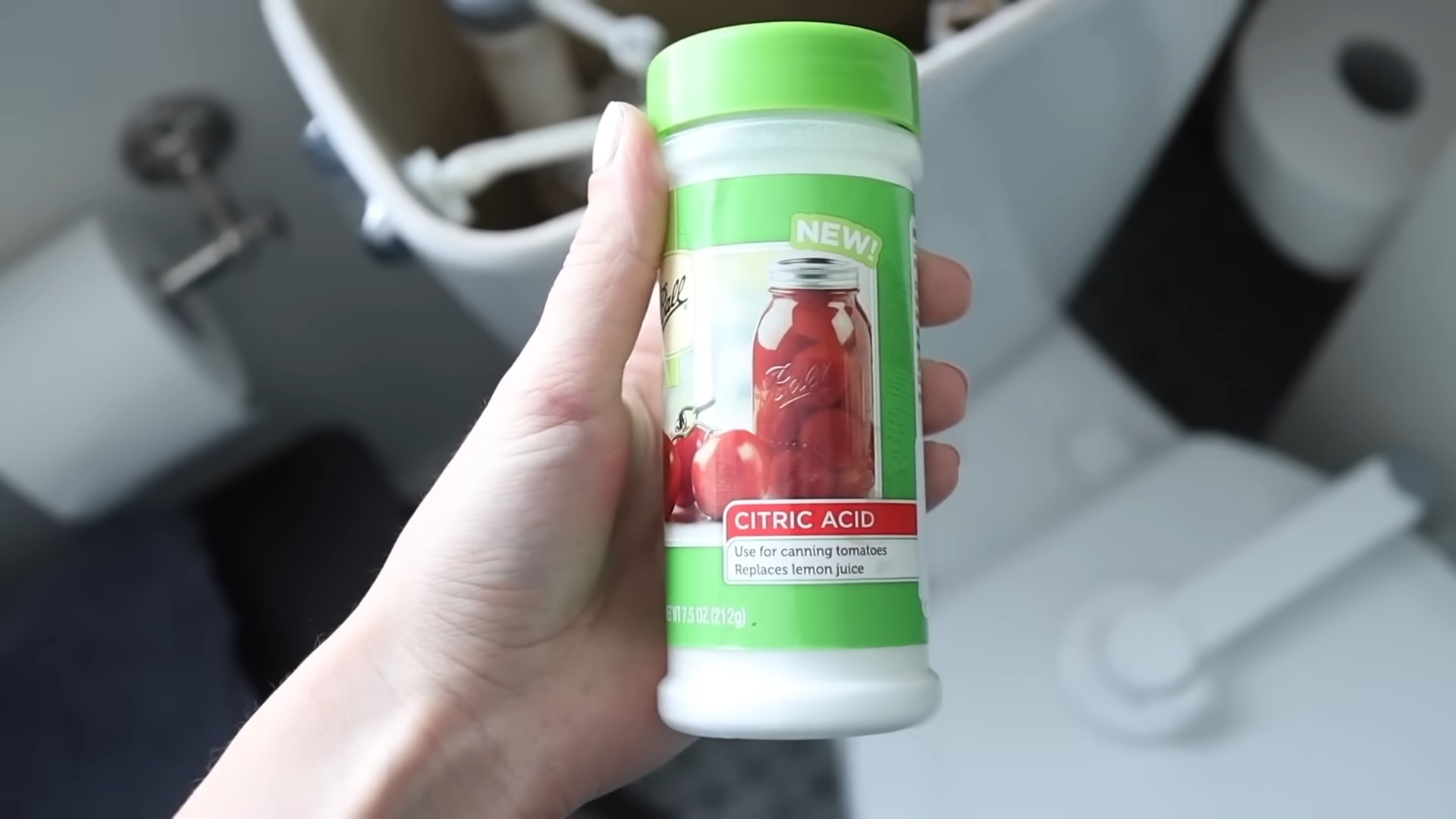
Citric Acid Cleaning Hacks: Your Ultimate DIY Guide
Hey there, fellow cleaning enthusiasts! I’m so excited to share my favorite citric acid cleaning hacks with you. Citric acid is a total game-changer – it’s natural, effective, and way more budget-friendly than many commercial cleaners. Plus, it’s super versatile! I use it for everything from descaling my kettle to getting rid of stubborn hard water stains. Let’s dive in!
What You’ll Need
Before we get started, let’s gather our supplies. The beauty of citric acid cleaning is that you probably already have most of these things lying around:
* Citric Acid Powder: This is the star of the show! You can find it online or in the baking aisle of most grocery stores.
* Spray Bottles: I like to have a few on hand for different cleaning solutions.
* Microfiber Cloths: These are my go-to for wiping surfaces clean without leaving streaks.
* Gloves: While citric acid is generally safe, it can irritate sensitive skin, so gloves are a good idea.
* Measuring Spoons/Cups: For accurate dilutions.
* Water: Tap water is fine for most applications.
* Optional: Essential oils (for a pleasant scent), baking soda (for extra scrubbing power), vinegar (use with caution, see notes below).
Important Note: Never mix citric acid with bleach! This can create dangerous chlorine gas. Also, while mixing citric acid with vinegar can boost cleaning power, always test it in an inconspicuous area first, as it can be too harsh for some surfaces.
Descaling Your Kettle or Coffee Maker
Hard water buildup can really affect the taste of your tea or coffee, and it can also shorten the lifespan of your appliances. Citric acid is perfect for descaling!
1. Prepare the Solution: Mix 1-2 tablespoons of citric acid powder with about 1 liter (4 cups) of water. The amount of citric acid you use will depend on how severe the scale is.
2. Fill the Kettle/Coffee Maker: Pour the citric acid solution into your kettle or the water reservoir of your coffee maker.
3. Boil/Run a Cycle: For a kettle, boil the solution. For a coffee maker, run a full brewing cycle without coffee grounds.
4. Let it Sit: Allow the solution to sit in the kettle or coffee maker for about 30 minutes to an hour. This gives the citric acid time to break down the limescale.
5. Rinse Thoroughly: This is crucial! Rinse the kettle or coffee maker several times with fresh water until all traces of the citric acid solution are gone. You might even want to boil/run another cycle with just water to be extra sure.
Cleaning Your Dishwasher
Dishwashers can get pretty grimy over time, and citric acid can help keep them sparkling clean.
1. Empty the Dishwasher: Make sure your dishwasher is completely empty.
2. Add Citric Acid: Pour about 2-3 tablespoons of citric acid powder into the detergent dispenser.
3. Run a Hot Cycle: Run a normal hot cycle with no dishes.
4. Optional: For extra cleaning power, you can also sprinkle a bit of citric acid on the bottom of the dishwasher before running the cycle.
Removing Hard Water Stains in the Bathroom
Hard water stains are the bane of my existence! But thankfully, citric acid makes them much easier to tackle.
1. Prepare the Solution: Mix 2 tablespoons of citric acid powder with 1 cup of warm water in a spray bottle.
2. Spray the Stains: Spray the citric acid solution directly onto the hard water stains on your shower doors, faucets, tiles, or toilet bowl.
3. Let it Sit: Allow the solution to sit for about 15-30 minutes. For stubborn stains, you might need to let it sit longer.
4. Scrub Gently: Use a sponge or microfiber cloth to gently scrub the stains. For tougher stains, you can use a non-abrasive scrubbing pad.
5. Rinse Thoroughly: Rinse the area with clean water.
6. Dry: Dry the surface with a clean microfiber cloth to prevent new water spots from forming.
Cleaning Your Toilet Bowl
Citric acid is a fantastic natural alternative to harsh toilet bowl cleaners.
1. Sprinkle Citric Acid: Sprinkle about 1/4 cup of citric acid powder directly into the toilet bowl.
2. Let it Sit: Allow the citric acid to sit for at least 30 minutes, or even overnight for really tough stains.
3. Scrub: Use a toilet brush to scrub the bowl thoroughly, paying attention to any stains or buildup.
4. Flush: Flush the toilet to rinse away the citric acid and any loosened debris.
Cleaning Burnt Food from Pots and Pans
Accidentally burnt dinner again? Don’t worry, citric acid can help!
1. Fill the Pot/Pan: Fill the burnt pot or pan with enough water to cover the burnt food.
2. Add Citric Acid: Add 1-2 tablespoons of citric acid powder to the water.
3. Boil: Bring the water to a boil and let it simmer for about 15-30 minutes.
4. Let it Cool: Allow the water to cool slightly before attempting to scrub.
5. Scrub: Use a sponge or non-abrasive scrubbing pad to scrub away the burnt food. The citric acid should have loosened it significantly.
6. Wash as Usual: Wash the pot or pan with soap and water as usual.
Making an All-Purpose Cleaning Spray
This is my go-to cleaning spray for almost everything!
1. Combine Ingredients: In a spray bottle, mix 1 tablespoon of citric acid powder with 2 cups of water.
2. Add Essential Oils (Optional): If you want to add a pleasant scent, add a few drops of your favorite essential oil, such as lemon, lavender, or tea tree.
3. Shake Well: Shake the bottle well to ensure the citric acid is fully dissolved.
4. Use: Spray the solution onto surfaces and wipe clean with a microfiber cloth. This spray is great for countertops, sinks, appliances, and more.
Rust Removal
Citric acid is a powerful rust remover, perfect for small tools or items with surface rust.
1. Prepare a Solution: Mix a stronger solution of citric acid – about 1/4 cup of citric acid powder per cup of hot water.
2. Soak the Item: Submerge the rusty item in the citric acid solution. Make sure the entire rusty area is covered.
3. Soak Time: Let the item soak for several hours, or even overnight, depending on the severity of the rust. Check periodically.
4. Scrub: After soaking, remove the item and scrub the rust away with a brush or scouring pad. The rust should come off much easier now.
5. Rinse and Dry: Rinse the item thoroughly with water and dry it completely to prevent new rust from forming. You can apply a rust preventative like oil or wax after drying.
Laundry Booster
Citric acid can also be used as a laundry booster to brighten whites and remove odors.
1. Add to Wash: Add 1-2 tablespoons of citric acid powder to your washing machine along with your regular detergent.
2. Wash as Usual: Wash your clothes as usual.
3. Benefits: Citric acid helps to brighten whites, remove stains, and neutralize odors. It’s especially effective for removing hard water buildup from clothes.
Cleaning Shower Heads
Shower heads can get clogged with mineral deposits, reducing water pressure. Citric acid can help dissolve these deposits.
1. Remove Shower Head (Optional): If possible, remove the shower head from the shower arm. This makes the cleaning process easier.
2. Prepare a Solution: Mix 1/4 cup of citric acid powder with 2 cups of hot water in a container large enough to submerge the shower head.
3. Soak the Shower Head: Submerge the shower head in the citric acid solution.
4. Soak Time: Let the shower head soak for several hours, or even overnight.
5. Rinse and Scrub: Remove the shower head from the solution and rinse it thoroughly with water. Use a small brush or toothpick to remove any remaining mineral deposits from the nozzles.
6. Reinstall: Reinstall the shower head and run the water for a few minutes to flush out any remaining citric acid.
Important Safety Tips
* Always wear gloves when working with citric acid, especially if you have sensitive skin.
* Avoid getting citric acid in your eyes. If contact occurs, rinse immediately with plenty of water.
*
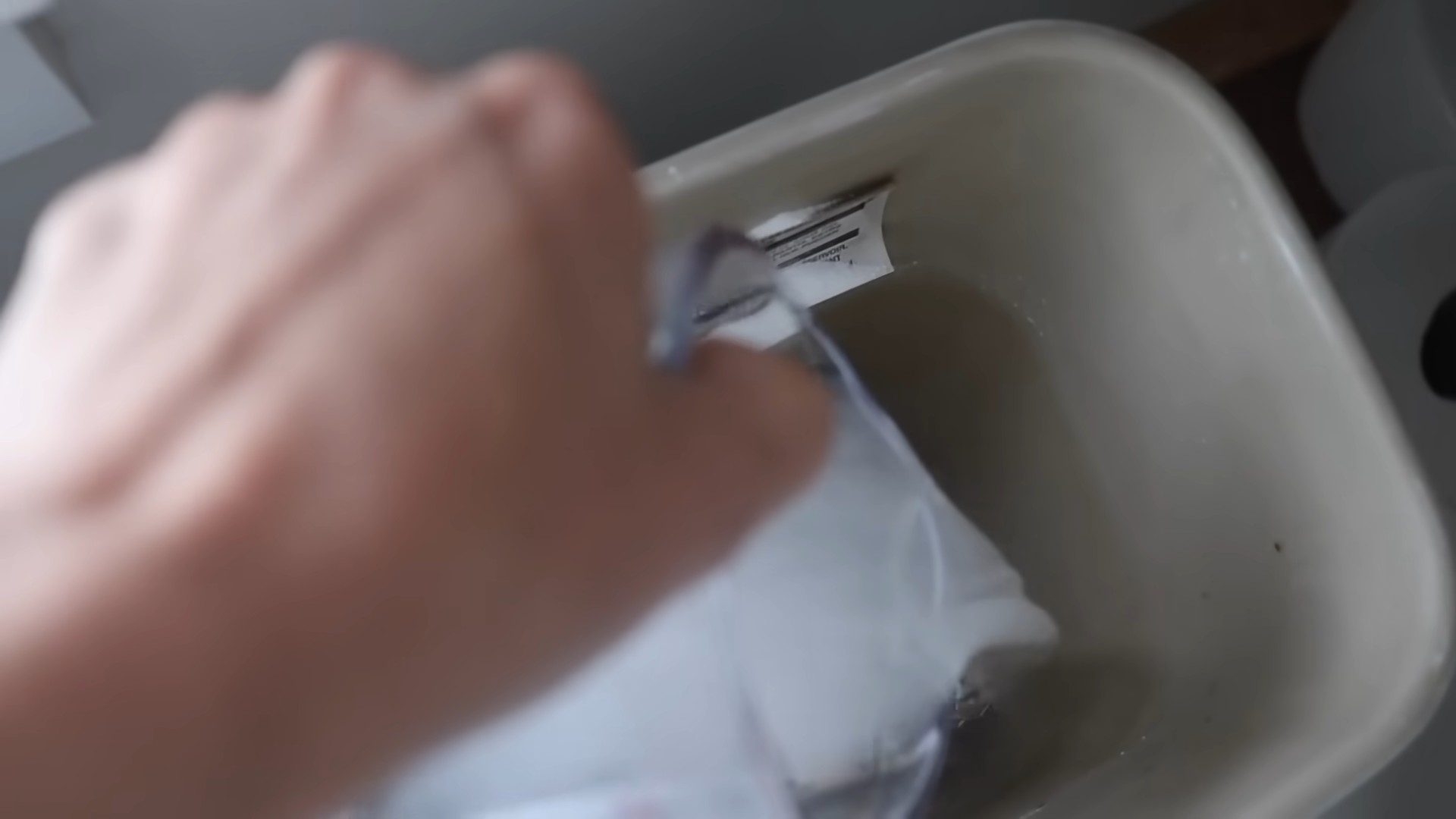
Conclusion
So, there you have it! Citric acid cleaning hacks are not just a trend; they’re a game-changer for anyone looking to ditch harsh chemicals and embrace a more natural and effective cleaning routine. From tackling stubborn hard water stains in your bathroom to reviving your dingy coffee maker, the versatility of citric acid is truly remarkable.
Why is this DIY trick a must-try? Because it’s simple, affordable, and incredibly effective. You’re not just cleaning; you’re investing in a healthier home environment by reducing your exposure to potentially harmful chemicals. Plus, the satisfaction of seeing those sparkling results, achieved with a natural ingredient, is simply unmatched.
But don’t just take our word for it! We encourage you to experiment and discover the power of citric acid for yourself.
Here are a few suggestions and variations to get you started:
* **Citrus Scent Boost:** Add a few drops of your favorite essential oil (lemon, orange, or grapefruit are excellent choices) to your citric acid solution for an extra burst of freshness.
* **Paste Power:** For tougher stains on vertical surfaces like shower walls, create a paste by mixing citric acid powder with a small amount of water. Apply the paste, let it sit for a few minutes, and then scrub gently.
* **Laundry Booster:** Add a tablespoon of citric acid to your washing machine along with your regular detergent to brighten whites and remove mineral buildup. Be sure to test on a small, inconspicuous area first to ensure colorfastness.
* **Rust Removal:** For rust stains on fabric, make a paste of citric acid and water, apply it to the stain, and let it sit for 30 minutes before washing as usual.
* **Citric Acid for Dishwashers:** Run an empty dishwasher cycle with a cup of citric acid powder in the detergent dispenser to remove hard water buildup and leave your dishwasher sparkling clean.
We’re confident that once you experience the cleaning prowess of citric acid, you’ll wonder how you ever lived without it. It’s a truly versatile and effective solution for a wide range of cleaning tasks around the home.
Now, it’s your turn! Try these citric acid cleaning hacks and share your experiences with us. What did you clean? What variations did you try? What were your results? We’re eager to hear your stories and learn from your successes. Let’s build a community of eco-conscious cleaners who are passionate about creating healthier and happier homes. Share your tips and tricks in the comments below!
Frequently Asked Questions (FAQs)
What exactly is citric acid, and is it safe to use?
Citric acid is a naturally occurring organic acid found in citrus fruits like lemons, limes, and oranges. It’s a weak acid, making it a safe and effective cleaning agent when used properly. It’s biodegradable and generally considered environmentally friendly. However, like any cleaning product, it’s essential to handle it with care. Avoid direct contact with your eyes and skin, and keep it out of reach of children and pets. While generally safe, some individuals may experience mild skin irritation. If you have sensitive skin, it’s recommended to wear gloves when using citric acid solutions.
Where can I buy citric acid?
Citric acid is readily available in most grocery stores, pharmacies, and online retailers. Look for it in the baking aisle, cleaning supplies section, or health food stores. It’s typically sold in powder form. You can also find it online from various retailers. Make sure to purchase food-grade citric acid for cleaning purposes, as it’s generally purer and safer to use.
Can I use lemon juice instead of citric acid powder?
While lemon juice contains citric acid, it’s not as concentrated as citric acid powder. You can use lemon juice as a substitute, but you’ll likely need to use a larger quantity to achieve the same results. Also, lemon juice contains sugars that can leave a sticky residue, so it’s important to rinse thoroughly after cleaning. For optimal results and convenience, citric acid powder is the preferred choice.
What surfaces should I avoid cleaning with citric acid?
While citric acid is generally safe for most surfaces, there are a few exceptions. Avoid using it on natural stone surfaces like marble, granite, and limestone, as it can etch and damage them. Also, avoid using it on aluminum, as it can cause discoloration. Always test a small, inconspicuous area first before cleaning an entire surface to ensure it’s compatible with citric acid. Be cautious when using it on grout, as it can sometimes lighten the color.
How do I make a basic citric acid cleaning solution?
Making a basic citric acid cleaning solution is simple. In a spray bottle, mix 1-2 tablespoons of citric acid powder with 1 cup of warm water. Shake well to dissolve the powder completely. You can adjust the concentration depending on the severity of the cleaning task. For tougher stains, you can use a stronger solution. Always label your spray bottle clearly to avoid accidental ingestion.
Can I use citric acid to clean my coffee maker?
Yes, citric acid is an excellent way to clean your coffee maker and remove mineral buildup. To do so, fill the water reservoir with a solution of 1-2 tablespoons of citric acid powder per cup of water. Run the coffee maker through a full brewing cycle. Then, run two cycles with fresh water to rinse away any remaining citric acid. This will leave your coffee maker clean and functioning optimally.
Is citric acid safe for septic systems?
Yes, citric acid is generally considered safe for septic systems. It’s a biodegradable and naturally occurring substance that won’t harm the beneficial bacteria in your septic tank. However, it’s always a good idea to use cleaning products sparingly, even those that are considered septic-safe.
How long does a citric acid cleaning solution last?
A citric acid cleaning solution can last for several weeks or even months if stored properly in a cool, dark place. However, it’s best to make a fresh solution every few weeks to ensure optimal effectiveness. Over time, the solution may lose its potency.
Can I use citric acid to remove hard water stains from shower doors?
Absolutely! Citric acid is highly effective at removing hard water stains from shower doors. Spray the shower doors with a citric acid solution (1-2 tablespoons of citric acid powder per cup of water). Let it sit for 10-15 minutes, then scrub with a sponge or brush. Rinse thoroughly with water. For stubborn stains, you may need to repeat the process or use a stronger solution.
What precautions should I take when using citric acid?
While citric acid is generally safe, it’s important to take a few precautions. Avoid direct contact with your eyes and skin. If contact occurs, rinse thoroughly with water. Keep it out of reach of children and pets. Do not ingest citric acid. Always test a small, inconspicuous area first before cleaning an entire surface. Wear gloves if you have sensitive skin. And always label your cleaning solutions clearly.

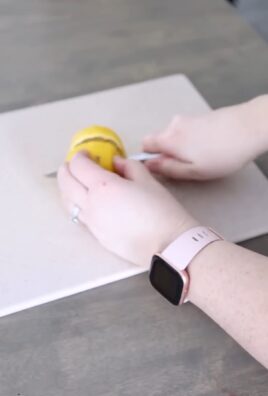
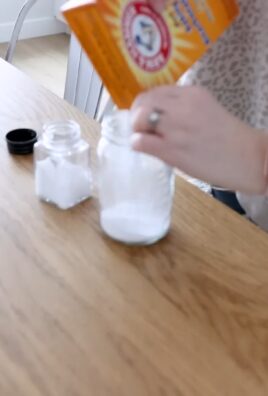
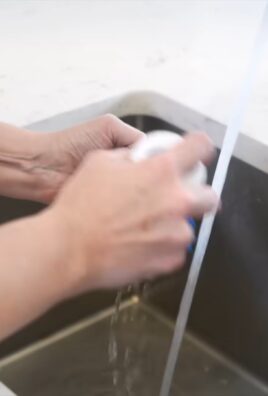
Leave a Comment